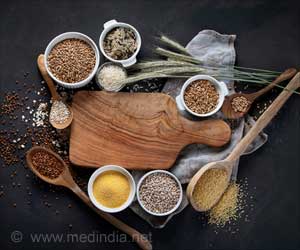Sohail “Raja” Kappadia has hit the nail on its head by aptly naming his motor training school in Mumbai as ‘The Good Luck Motor Training School”. Wonder why? Because he says “good luck” is exactly what you need to survive on Indian roads!
Kappadia knows it only too well: a friend recently became another of the country’s shocking fatal road accident statistics, while one of his pupils has just rammed into the back of another car during a lesson.“Sometimes you just don’t know if the guy in front is going to brake,” he told AFP with a shrug. “Presence of mind is a must here. Most of the accidents in Mumbai are due to rash negligence.”
India has the dubious distinction of being the deadliest place in the world to drive.
The country has 10 percent of the estimated 1.2 million road deaths worldwide, according to the International Road Federation in Geneva.
Mortality rates on Indian roads are 14 per 10,000 vehicles, compared to less than two per 10,000 in developed countries, the World Bank has said.
And by the end of the next decade, the organization predicted that road deaths will overtake those from deadly diseases and most of the fatalities will be pedestrians.
Advertisement
Drivers here run the gauntlet of speeding taxis, weaving auto-rickshaws, trucks and buses as well as hand-carts and cows on congested, pot-holed roads, some of which have remained largely unchanged since the end of the colonial era more than 60 years ago.
Advertisement
Meanwhile laws governing the wearing of seatbelts and a ban on using mobile phones at the wheel are frequently flouted, indicators are seldom used and at night drivers often fail to switch on their headlights.
Motorcyclists riding without helmets with pillion passengers perched behind are a common sight.
For a learner driver, Shahik Arqam looks unfazed by such experiences.
“It’s a little bit difficult but I know how other drivers work,” the 24-year-old architect said.
During an hour-long lesson in a battered right-hand drive Hyundai Santro, Arqam has had to be alert.
Other drivers made no allowance for the red L-plates and warning triangle displayed prominently on the car.
Instead he was treated like any other road user and blasted by a chorus of car horns for driving too slowly, failing to pull away quickly enough from traffic lights or for stalling.
Filtering vehicles from the left failed to give way as he headed down the main road to Churchgate railway station, and he had to hold his nerve as cars swerved in and out of lanes in the tussle for pole position.
Mohsin Ali, an instructor for 12 years, takes Mumbai’s chaotic roads in his stride, gently issuing either verbal instructions or hand signals to his pupil as the car picked its way through the heavy mid-afternoon traffic.
“If you follow the traffic rules then it’s very easy,” the 39-year-old said afterwards. “Compared to Calcutta (Kolkata) and Madras (Chennai) the traffic is better here.”
To be sure, the Mumbai authorities have been trying to make the roads safer.
Roadsigns reminding drivers to belt up, only use the horn when necessary - rather than in constant cacophony, as encouraged by the “horn please” request painted on the rear of many vehicles - and not use their mobile phones have appeared across the city.
Signs also remind motorcyclists to wear helmets and there has been a crackdown on drink-driving.
Some 632 people died in what the Indian media calls road traffic “mishaps” in Mumbai in 2007, but by the end of August that had fallen to 377, according to police figures.
Kappadia agrees that better driver training is a must if safety is to be improved on India’s roads, particularly as private car ownership increases on the back of the country’s strong economic growth.
The 33-year-old said he would ban heavy goods vehicles from cities during the day, toughen sentences for drink-drivers, improve road infrastructure and spread the message that speed kills, especially among the young.
Some welcome measures have been taken, such as raising entry standards and lowering age limits for truck drivers, but more needs to be done, he said.
In the meantime, the Indian driving mantra of “good brakes, good horn, good luck” will have to do.
Source-AFP
TAN/M









